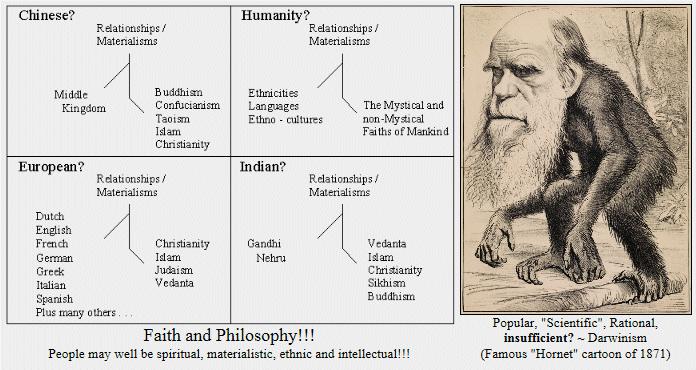The Parable of the Burning House
from the Lotus Sutra
One day, a fire broke out in the house of a wealthy
man who had many children. The wealthy man shouted at his children inside the
burning house to flee. But, the children were absorbed in their games and
did not heed his warning, though the house was being consumed by flames.
Then, the wealthy man devised a practical way to lure the children from the burning house. Knowing that the children were fond of interesting playthings, he called out to them, "Listen! Outside the gate are the carts that you have always wanted: carts pulled by goats, carts pulled by deer, and carts pulled by oxen. Why don't you come out and play with them?" The wealthy man knew that these things would be irresistible to his children.
The children, eager to play with these new toys rushed out of the house but, instead of the carts that he had promised, the father gave them a cart much better than any he has described - a cart draped with precious stones and pulled by white bullocks. The important thing being that the children were saved from the dangers of the house on fire.
Then, the wealthy man devised a practical way to lure the children from the burning house. Knowing that the children were fond of interesting playthings, he called out to them, "Listen! Outside the gate are the carts that you have always wanted: carts pulled by goats, carts pulled by deer, and carts pulled by oxen. Why don't you come out and play with them?" The wealthy man knew that these things would be irresistible to his children.
The children, eager to play with these new toys rushed out of the house but, instead of the carts that he had promised, the father gave them a cart much better than any he has described - a cart draped with precious stones and pulled by white bullocks. The important thing being that the children were saved from the dangers of the house on fire.
In this parable the father, of course, is the Buddha and sentient beings are the children trapped in the burning house. The Burning House represents the world burning with the fires of old age, sickness and death. The teachings of the Buddha are like the father getting the boys to leave their pleasures for a greater pleasure, Nirvana.
A further interpretation is to see the the goat, deer, and ox carts as representing the early teachings of Buddhism, as the teachings of Hinayana Buddhism (the Mahayana term for the Buddhism that preceded it), and the cart pulled by white bullocks to 'The Lotus Sutra' which, when followed, leads to Buddhahood.
Is Human Being more truly Metaphysical than Physical?

Where this could, possibly, lead ...

N. B. The page mentioned in the graphic ~ roots.asp ~
has been replaced by this page
This 'knot of roots' insight features in:
